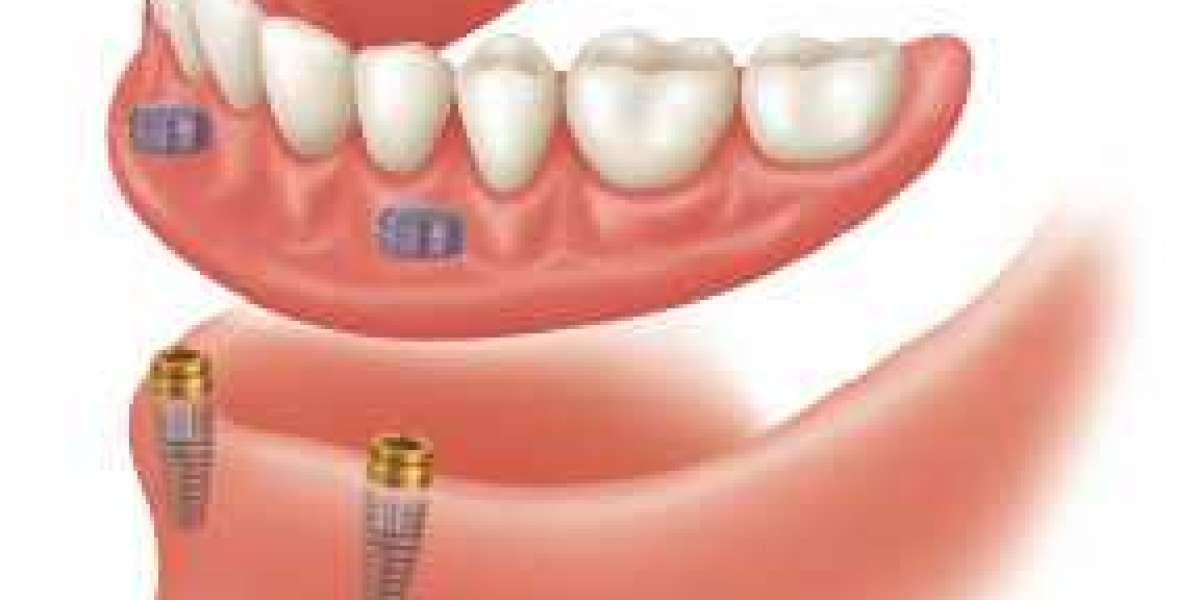Introduction to Dental Implants
When considering ways to restore your smile, dental implants stand out as a reliable and effective solution. Whether you've lost a tooth due to injury, decay, or other health issues, dental implants offer a durable and aesthetically pleasing option. This guide will delve into the various aspects of dental implants, providing you with the information you need to make an informed decision about your oral health.
What Are Dental Implants?
Understanding the Basics
Dental implants are artificial tooth roots, typically made of titanium, that provide a permanent base for fixed or removable replacement teeth. These implants are designed to blend seamlessly with your natural teeth, offering a long-term solution that can last a lifetime with proper care.
The Components of Dental Implants
- The Implant: A screw that serves as a root for your new teeth.
- The Abutment: A permanent, but removable by your doctor, connector that supports and holds a tooth or set of teeth.
- The Crown: The part of the tooth that you can see. It's usually made of zirconium or porcelain for durability and a natural look.
Benefits of Dental Implants
Why Choose Dental Implants?
Dental implants offer numerous advantages over other tooth replacement options. Here are some key benefits:
- Natural Look and Feel: Implants look, feel, and function like your natural teeth.
- Durability: They are designed to last many years and with good care, many implants last a lifetime.
- Improved Oral Health: Implants do not require reducing other teeth, as a tooth-supported bridge does. Because nearby teeth are not altered to support the implant, more of your own teeth are left intact, improving long-term oral health.
- Bone Preservation: Dental implants help prevent bone loss by stimulating the jawbone, maintaining the bone's natural shape and density.
- Enhanced Comfort: Implants eliminate the discomfort of removable dentures.
The Dental Implant Procedure
Step-by-Step Process
Initial Consultation
Your journey to a restored smile begins with a consultation. During this visit, your dentist will evaluate your oral health, take X-rays, and discuss your treatment options. This is a crucial step to determine if you are a good candidate for dental implants.
Treatment Planning
Once you are deemed a suitable candidate, your dentist will create a personalized treatment plan. This plan will outline the steps of the procedure, estimated timeline, and cost.
Placement of the Implant
The first surgical procedure involves placing the dental implant into the jawbone. This is done under local anesthesia. The implant is then allowed to heal and integrate with the bone in a process called osseointegration, which can take several months.
Attaching the Abutment
After the implant has bonded with the jawbone, a small connector called an abutment is placed on the implant to hold and support the new tooth. This minor surgery is usually performed with local anesthesia.
Placing the Crown
Finally, a custom-made crown is attached to the abutment. This crown is crafted to match your natural teeth in color and shape, ensuring a seamless and natural appearance.
Are You a Candidate for Dental Implants?
Factors to Consider
Not everyone is an ideal candidate for dental implants. Certain conditions and lifestyle factors can affect your eligibility:
- Healthy Gums and Sufficient Bone Density: Adequate bone in your jaw is needed to support the implant. If your bone is too thin or soft, you may require a bone graft before you can have an implant.
- Good Overall Health: Conditions such as uncontrolled diabetes or heart disease may interfere with healing and reduce the likelihood of a successful implant.
- Non-Smoker: Smoking can interfere with healing and may reduce the success rate of dental implants.
Types of Dental Implants
Exploring Your Options
There are several types of dental implants to consider:
- Endosteal Implants: These are the most common type, placed directly into the jawbone.
- Subperiosteal Implants: These are placed under the gum but above the jawbone, typically used for patients who do not have enough healthy jawbone and cannot undergo a bone augmentation procedure.
Preparing for Your Dental Implant Surgery
Pre-Surgery Considerations
Medical Evaluation
Before surgery, you will undergo a comprehensive medical evaluation to ensure you are in good health. This may include blood tests and other diagnostic exams.
Oral Hygiene
Maintaining excellent oral hygiene is crucial. Your dentist will provide specific instructions on how to care for your mouth before and after surgery to ensure the best possible outcome.
The Recovery Process
What to Expect After Surgery
Immediate Aftercare
Post-surgery care is vital for successful healing. You can expect some discomfort, swelling, and minor bleeding. Your dentist will prescribe pain medications and antibiotics to manage these symptoms.
Long-Term Care
Long-term care includes maintaining good oral hygiene, regular dental check-ups, and avoiding habits like smoking that can compromise your implant. Your dentist will guide you on the best practices to ensure the longevity of your implant.
Potential Risks and Complications
Understanding the Risks
Like any surgical procedure, dental implants come with potential risks and complications, including:
- Infection: Infection at the implant site can occur.
- Injury or Damage: Nearby structures such as other teeth or blood vessels can be damaged during the procedure.
- Nerve Damage: This can cause pain, numbness, or tingling in natural teeth, gums, lips, or chin.
- Sinus Problems: Sinus issues can occur, especially if the implants protrude into the sinus cavities.
Cost of Dental Implants
Financial Considerations
Factors Influencing Cost
The cost of dental implants can vary widely based on several factors:
- Number of Implants: More implants will increase the cost.
- Type of Implant: The materials used and the type of implant can affect the price.
- Additional Procedures: Bone grafts, sinus lifts, and other preparatory procedures can add to the cost.
- Geographic Location: Prices can vary by region and the expertise of the dental professional.
Insurance and Payment Options
Many dental insurance plans do not cover implants. However, some insurance plans may cover part of the cost. It's essential to check with your insurance provider and discuss payment options with your dental office.
Alternatives to Dental Implants
Exploring Other Options
While dental implants are an excellent solution, they may not be suitable for everyone. Here are some alternatives:
- Bridges: Dental bridges can replace one or more missing teeth by anchoring to adjacent teeth.
- Dentures: Partial or full dentures can be an option for multiple missing teeth.
- Resin-Bonded Bridge: Also known as a Maryland bridge, it involves a metal or porcelain framework bonded to the back of your existing teeth.
Maintaining Your Dental Implants
Long-Term Care Tips
Proper care of dental implants is crucial for their longevity:
- Regular Brushing and Flossing: Maintain a regular oral hygiene routine.
- Avoid Hard Foods: Hard foods can damage your implants.
- Regular Dental Visits: Regular check-ups are essential to monitor the health of your implants.
Conclusion
Making the Decision
Dental implants are a significant investment in your oral health and overall well-being. With their durability, natural appearance, and numerous benefits, they can dramatically improve your quality of life. By understanding the procedure, benefits, risks, and care involved, you can make an informed decision that best suits your needs.
Take the Next Step
If you are considering dental implants, consult with a qualified dental professional to discuss your options and develop a personalized treatment plan. Your path to a brighter, healthier smile starts with informed choices and professional care.









